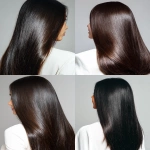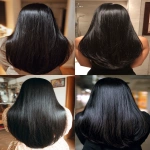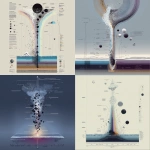Explore the Best AI Image Gallery

AI-Powered Product Photography: Reshaping the Creative Landscape
The realm of e-commerce is constantly evolving, with consumers demanding high-quality product imagery to inform their purchasing decisions. Artificial intelligence (AI) has emerged as a powerful force in this arena, revolutionizing the way product photography is created, edited, and utilized. From generating stunning visuals to automating time-consuming tasks, AI is reshaping the creative landscape for photographers, marketers, and businesses alike.
Unlocking Creative Potential with AI
AI-powered tools are empowering photographers to push creative boundaries and achieve new levels of visual sophistication. Here are some key applications:
- Automated Image Generation: AI algorithms can generate realistic product images from scratch, eliminating the need for physical photography in certain scenarios. This is particularly beneficial for businesses dealing with a large catalog of products or those requiring variations (e.g., different colors, sizes).
- Background Removal and Replacement: AI can seamlessly remove backgrounds from product images, allowing for easy placement onto various backgrounds or the creation of lifestyle shots without extensive editing.
- Image Enhancement and Retouching: AI-powered tools can automatically enhance image quality, correct lighting issues, adjust colors, and remove blemishes, resulting in professional-looking visuals with minimal effort.
- 3D Product Visualization: AI is enabling the creation of interactive 3D product models that allow customers to virtually explore products from all angles, enhancing their understanding and engagement.
Streamlining Workflow and Efficiency
Beyond creative enhancements, AI is significantly impacting the efficiency of product photography workflows:
- Automated Tasks: Repetitive tasks such as resizing images, applying watermarks, and generating different image formats can be automated by AI, freeing up photographers to focus on more creative aspects.
- Faster Turnaround Times: By automating processes, AI significantly reduces the time required to create high-quality product images, enabling businesses to respond quickly to market demands and update their online catalogs efficiently.
- Cost Optimization: The automation of tasks and the potential to reduce the need for physical photography can lead to significant cost savings for businesses.
Ethical Considerations in AI-Powered Photography
While AI offers immense benefits, its crucial to address the ethical implications associated with its use in product photography:
- Transparency and Authenticity: Consumers have a right to know when images are generated by AI. Businesses should be transparent about their use of AI and ensure that AI-generated imagery is clearly distinguishable from real photographs.
- Bias and Representation: AI algorithms can perpetuate existing biases if trained on biased datasets. Its essential to ensure that AI-generated imagery represents diverse perspectives and avoids reinforcing harmful stereotypes.
- Intellectual Property Rights: The ownership and copyright of AI-generated images are complex legal issues that require careful consideration.
Future Trends in AI Product Photography
The field of AI product photography is rapidly evolving, with ongoing research and development driving innovation. Here are some anticipated future trends:
- Hyper-realistic Imagery: Advances in AI will lead to the creation of even more realistic and immersive product visualizations.
- Personalized Product Experiences: AI can generate customized product imagery tailored to individual customer preferences, enhancing engagement and conversions.
- AI-Driven Storytelling: AI can be used to create compelling narratives around products, using images and videos to evoke emotions and connect with consumers on a deeper level.
Conclusion
AI is undoubtedly transforming the landscape of product photography, empowering businesses to create stunning visuals, streamline workflows, and deliver personalized customer experiences. By embracing these advancements responsibly and addressing ethical considerations, we can harness the full potential of AI to elevate the creative process and drive innovation in the e-commerce world.



](https://images.ai-img.art/thumbnails/150/266c825c7f03beff90a8a60e36207b8240cdf722eb1cf5db26e8adb51b992287.webp)

](https://images.ai-img.art/thumbnails/150/bda14621f89269b376d6681934fea3c4af8c5f8593b80e1cb25cdf0047f98621.webp)



](https://images.ai-img.art/thumbnails/150/b814eba984b490e7f87095501b4c13b17e89f8960f044f09fbf2053969d9be29.webp)
](https://images.ai-img.art/thumbnails/150/10ab1dbb1358d3dbba41472a395400bd9daf5cba3f5c8841970b4110820d5a15.webp)

](https://images.ai-img.art/thumbnails/150/396b1c442fa4d576e35f871ba0f3c7e52bb62c6bcee69082dbcb816a5fd3aa8c.webp)


](https://images.ai-img.art/thumbnails/150/f7e46d83151e744219d4886ca1329794d3e9d5071649abea0b2996cb34c3c77c.webp)


](https://images.ai-img.art/thumbnails/150/230fb1adf4241373591167585daecc4556f4c58c4d0dc33638c62b1c60c1b72a.webp)








](https://images.ai-img.art/thumbnails/150/6650b0d98c6fec81df8bdfb569e0033970b46a653d188dde42417e624901493f.webp)






](https://images.ai-img.art/thumbnails/150/2f4f685af05f9526e1ac2f05f53dbb1d97bf8a65f6a41c6e67059c5ed2aa871f.webp)


](https://images.ai-img.art/thumbnails/150/58fa7e3c741db40e9e61e20410c8d5675b11efb625df109812cc768f9b17b717.webp)











